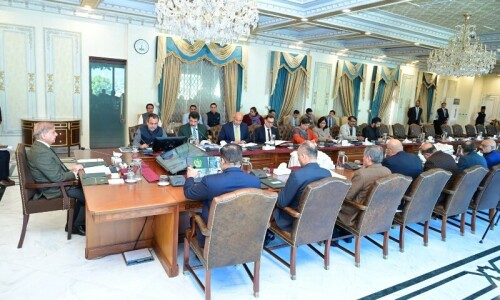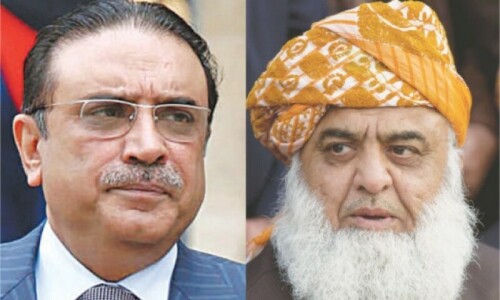WASHINGTON: As the United States and Pakistan reengage on Tuesday in efforts to improve their ties, the Pentagon reminded Islamabad that war against terrorism in the South Asian region has reached an inflection point and it should use this opportunity to defeat terrorists.
“With respect to Pakistan we believe that Pakistan can do more to combat terrorism,” Pentagon Chief Spokesperson Dana W. White said at a weekend news briefing in Washington.
“This is an inflection point and this is an opportunity and Pakistan has an opportunity to do more,” she added. “They’ve been victims of terrorism. So, we’ll look forward to continuing to work with them to see where there are opportunities.”
When reminded that Pakistan has welcomed the Afghan government’s latest peace offer to the Taliban, Ms White said: “The Taliban has to abandon terror, it has to abandon violence, and it has to support the Afghan constitution.”
She also noted that the United States continues to consult New Delhi, not only about “India’s very important role” in Afghanistan but also on other issues that go beyond the South Asian region.
The briefing precedes Pakistan’s Foreign Secretary Tehmina Janjua’s two-day visit to Washington, which begins on Tuesday for talks that follow a similar, unscheduled visit to Islamabad by a senior Trump aide, Lisa Curtis.
On Sunday, official sources confirmed that Ms Janjua will have a series of meetings both at the White House and the State Department and will also address think-tank experts at the US Institute of Peace during her short stay in Washington.
At the White House, Secretary Janjua is likely to have another meeting with Ms Curtis, the US National Security Council’s senior director for South and Central Asia. The two met in Islamabad last week during the US official’s surprise visit to the Pakistani capital. After this and other meetings with senior civil and military officials in Islamabad, Ms Curtis expressed the desire to “move toward a new relationship” with Pakistan.
And recent comments by senior US officials, including the Pentagon’s chief spokesperson, give an outline of how Washington perceives this new relationship.
As Acting Assistant Secretary of State Alice Wells explained in a recent interview to VOA, a big positive in this new approach is the assurance that the United States does not want to sever its ties to Pakistan. But Washington is not seeking the revival of the old relationship, which made Pakistan a key ally, first during the Cold War, and then again in the war against terror.
Instead, as the Pentagon official clarified, Washington wants to base this relationship in new realities explained in recent US policy papers, which downplay the threat of terrorism. Instead, they see the growing influence of China and Russia, particularly in Asia, as a greater threat to US interests.
The papers also made it clear that Washington views India as a strategic ally for countering these threats from China and Russia.
Published in Dawn, March 5th, 2018














































